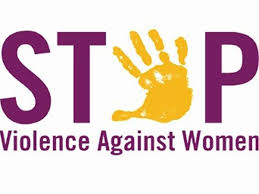The Vishakha Guidelines is also known as the Vishakha judgment. It is a landmark decision made by the Supreme Court of India in 1997. The guidelines are designed to prevent and address sexual harassment in the workplace, and they have since been adopted by many organizations across India.

The guidelines were developed in response to a case of sexual harassment involving a social worker in Rajasthan, who was sexually assaulted by her employer. The case highlighted the prevalence of sexual harassment in the workplace, and the need for a legal framework to address the issue.
The Vishakha Guidelines establish a framework for preventing and addressing sexual harassment in the workplace. They require organizations to develop a clear policy on sexual harassment, to establish a complaints committee to investigate and address complaints, and to provide training and awareness programs for employees.
The guidelines also define sexual harassment broadly, including unwelcome physical contact, requests for sexual favors, and other verbal or non-verbal conduct of a sexual nature. They place the burden of proof on the accused, rather than the victim, and provide for a range of remedies in cases of sexual harassment, including compensation and disciplinary action.
Vishakha Guidelines for Organisation
- Develop a clear policy on sexual harassment in the workplace.
- Establish a complaints committee to investigate and address complaints of sexual harassment.
- Ensure that the complaints committee is headed by a woman and has at least half of its members as women.
- Conduct awareness programs and training for employees on preventing and addressing sexual harassment.
- Define sexual harassment broadly to include unwelcome physical contact, requests for sexual favors, and other verbal or non-verbal conduct of a sexual nature.
- Place the burden of proof on the accused, rather than the victim, in cases of sexual harassment.
- Ensure that complaints of sexual harassment are dealt with promptly and that appropriate disciplinary action is taken against the accused.
- Provide a range of remedies in cases of sexual harassment, including compensation and disciplinary action.
- Ensure that victims of sexual harassment are protected from retaliation.
- Maintain confidentiality during the investigation and resolution of complaints.
The Vishakha Guidelines have had a significant impact on the way organizations in India address sexual harassment in the workplace. They have helped to raise awareness of the issue and to provide a framework for addressing complaints. However, there is still much work to be done to ensure that all workplaces in India are safe and free from sexual harassment.
In conclusion, the Vishakha Guidelines are an important step forward in addressing the issue of sexual harassment in the workplace in India. They provide a framework for preventing and addressing sexual harassment, and they have helped to raise awareness of the issue. By continuing to promote awareness and implement the guidelines, we can create a safer and more equitable workplace for all.
Important Links